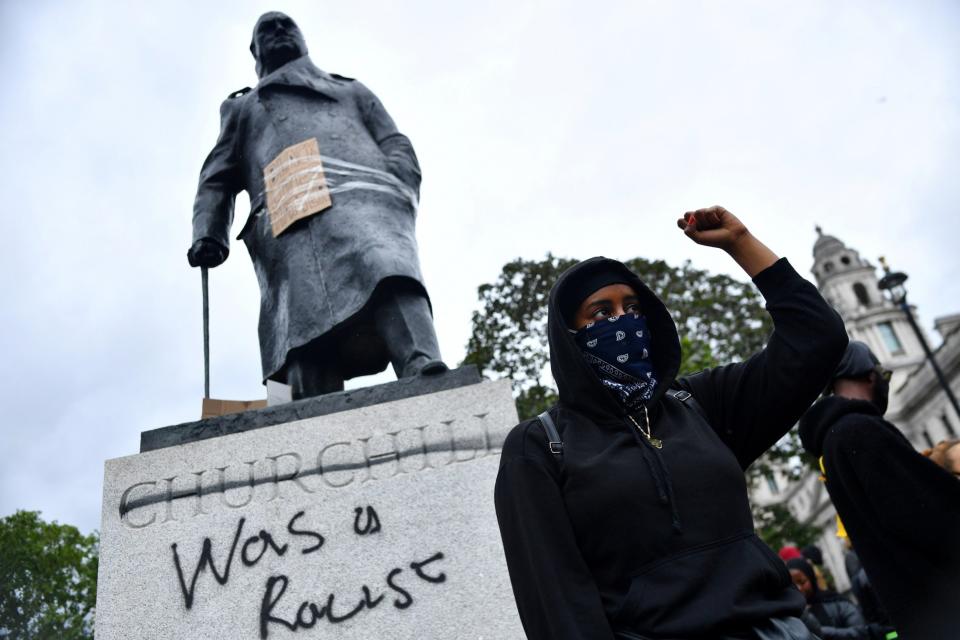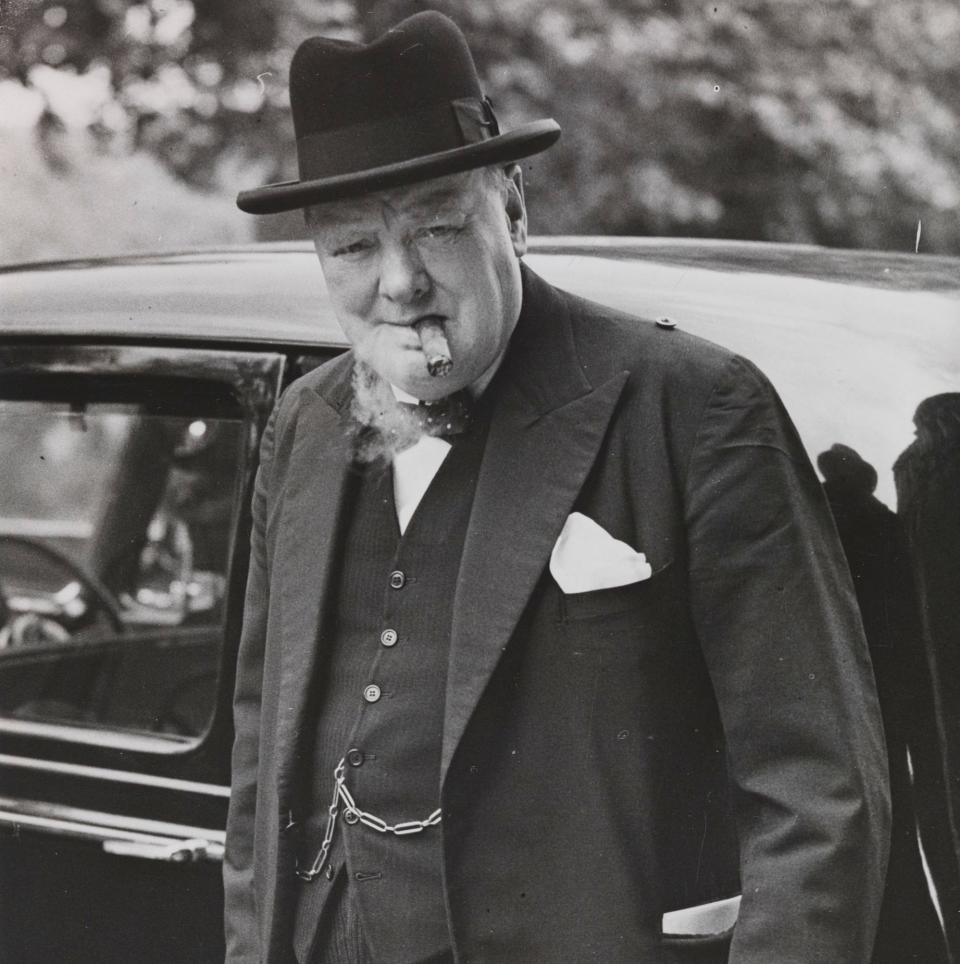Saviour of Western democracy or racist imperialist? Greatest Briton of all time or villain of the Bengal famine, the Tonypandy Riots and independence movements from India to Iraq to Ireland? While enthusiasm for dissecting on Thursday. “It is a pack of lies.” In The Washington Free Beacon the next day, Andrew Roberts argued that the Prime Minister spent half a century combatting the triple threats of Wilhelminism, Nazism and Communism, thereby saving freedom of speech “that has been so squalidly abused” by this “intellectually vacant” interview.
Victor Davis Hanson in The Free Press, a distinguished military historian, wrote: “Britain was the only one of the six major belligerents in World War II that went to war on the principle of a third-party nation’s territorial integrity.” What’s more, any peace terms would have been at best a “David Lloyd George Pétain-like collaborationist government”; at worst a “Nazi-imposed Oswald Mosley Quisling dictatorship”.
“In sum,” Hanson argued, “Germany and its fascist allies started World War II, initiated the mass warring on civilians, and institutionalised genocide. And they felt empowered to do so not because of Allied aggression or terrorism, but because of initial Western European appeasement, American isolationism, and Russian collaboration.”
So, although Darryl Cooper should consider his hot take on history thoroughly rebutted (unsurprisingly, his unabashed X feed describes his many critics as “shameless”, “mendacious” and a “loud minority of hyenas”), this row still tells us something fascinating about Churchill’s legacy – as well as the contemporary American political landscape.
One of the less-examined claims among Cooper’s ramblings is that the war fatally weakened the West. A variant of this right-wing criticism of Churchill was expressed in respectable academic form in the 1990s by Prof John Charmley, a British historian. If the prime minister had negotiated with Hitler, Charmley argues in Churchill: the End of Glory, he might have been able to avoid defeat in the battles he really cared about. For example, preserving the Empire, preventing socialism in Britain and stopping the Soviet Union from dominating the European continent.

“This school of thought struggled to find an audience in Britain because it proceeds from the twin premises that socialism was uniquely terrible and the British Empire uniquely good,” explains Dominic Sandbrook, author of a series of acclaimed histories on post-war Britain and co-host of the popular The Rest is History podcast.
But although Charmley’s view has been largely drowned out by a combination of louder, Left-wing critics, staunch Right-wing supporters and “maybe 75 per cent of people who sit in neither camp and simply view Churchill as a national hero”, criticising Churchill from the Right is a “peculiarly American” phenomenon that stretches back to the 1930s.
“There has always been an element of American populism obsessed with European cosmopolitan conspiracies,” says Sandbrook. “Many felt they were tricked into joining the war in 1917 and this fuelled some of the arguments for isolationism in the 1920s.
“Churchill, with his cigars, bowties and Blenheim pedigree, was the perfect hate figure for these populists. And although this suspicion was largely suspended in 1941, it never went away entirely. Pat Buchanan, who worked for Nixon and challenged George H W Bush for the White House in 1992, anticipated a lot of what Cooper has been saying recently in books such as Churchill, Hitler and The Unnecessary War.”

So why is this unpleasant sub-culture enjoying a right-wing renaissance in America now?
“If Hitler is no longer widely understood as the negation of our deepest values, America will be softened up for Donald Trump’s most authoritarian plans,” writes Michelle Goldberg in The New York Times.
“It is calculated Kremlin-inspired disinformation on a vast scale designed to confuse and misrepresent history in the interest of elevating a view that Western democracy is at fault in the long twilight struggle against authoritarianism,” writes Marc Johnson in Idaho’s Lewiston Tribune, on the notion that the West didn’t need to fight Hitler.
Frank Luntz, a veteran American pollster and political consultant, discounts such apocalyptic theories. “I don’t think this is a meaningful, measurable trend,” he says. “Cooper is simply wrong.”
But while the story of a podcaster who riled the White House and half the academic establishment might not represent a conspiracy of widespread authoritarian acceptance, many point to a looser, if no less damaging, ecosystem of Trumpism, contrarianism and egotism.
Sohrab Ahmari, a conservative columnist, has written compellingly about what he calls “the Barbarian Right”, a group of “pseudo-scholars” eager to “overthrow egalitarian – and essentially feminine – structures”, while attempting to revive some of the “darkest tendencies in the history of thought, including the idolatry of strength (as cartoonishly personified by the likes of Andrew Tate); the notion of supposedly ‘natural’ hierarchies; IQ-based eugenics; overt racism and anti-Semitism”.
Their denizens have, he argues, “got what they wished for” out of Cooper’s interview, praising it widely online and adding their own racist and anti-Semitic tropes.
Carlson, a Trump confidant and notorious cable news host who has entertained conspiracy theories, was finally sacked by Fox last April. Undeterred by losing his $20 million salary, he has taken his contentious views and some of his audience to YouTube and X, where his nearly 14 million followers were treated to his soft-soap interview with Cooper last week.
Their cosy, two-hour chat rounded off a busy – and, presumably, lucrative – period for Carlson. Not only did he famously interview Vladimir Putin in February (the Russian President lectured him, almost uninterrupted, on his unique version of Ukrainian history), but he is widely viewed to be responsible for Trump choosing JD Vance as his running mate, having repeatedly interviewed the would-be vice president at Fox and afterwards.

After a prime slot addressing the Republican National Convention in July, Carlson launched a 15-stop live tour last week by interviewing a barefooted Russell Brand in Arizona. The controversial British comedian, who once supported Jeremy Corbyn, endorsed Trump’s MAGA movement, dropped to his knees on stage and led the crowd in prayer.
Brand’s cameo in this strange nexus of podcasters, presidents, pundits and pseudo-scholars leads us to the conclusion that this story primarily illuminates – and inflates – the egos of a new tribe of internet iconoclasts more interested in being provocative than accurate. Gnomically claiming rare and privileged enlightenment in the face of universally accepted truths, the likes of Cooper have discovered that the Second World War provides fertile ground for tilting at contemporary shibboleths.
“The true villains of [Cooper’s] story are not, in the end, Hitler or Churchill,” writes Megan Garber in The Atlantic, where she accuses Cooper of creating “straw men”.“Instead, they are the culture warriors of the present: the woke, the mobs, the ruling class – the people who will be offended by claims such as ‘Winston Churchill Ruined Europe’.”
Ferguson added his own villain to this list last week, blaming podcasts for “drowning history in a tidal wave of blather, at best sloppy, at worst mendacious”.
Sandbrook, unsurprisingly, disagrees.
“There are a lot of history podcasts out there – some are very good, whereas some have a tendency to be obsessed with soldiers, samurais and themselves,” he says. “A test of a good historian is that they’re honest about what they don’t know, while acknowledging that other historians think differently. Unfortunately, the last 20 years have given a platform to nerdy bores and ranting monomaniacs with a bee in their bonnet.”
The last seven days have certainly given these two monomaniacs their 15 minutes’ worth. Darryl Cooper’s podcast, “The Martyr Made”, was third on Apple’s charts over the weekend, just behind “The Tucker Carlson Show” which had introduced him as “the best and most honest popular historian in the United States”.
As they – like many others – probably think Churchill said (he didn’t): “Success consists of going from failure to failure without loss of enthusiasm.”


